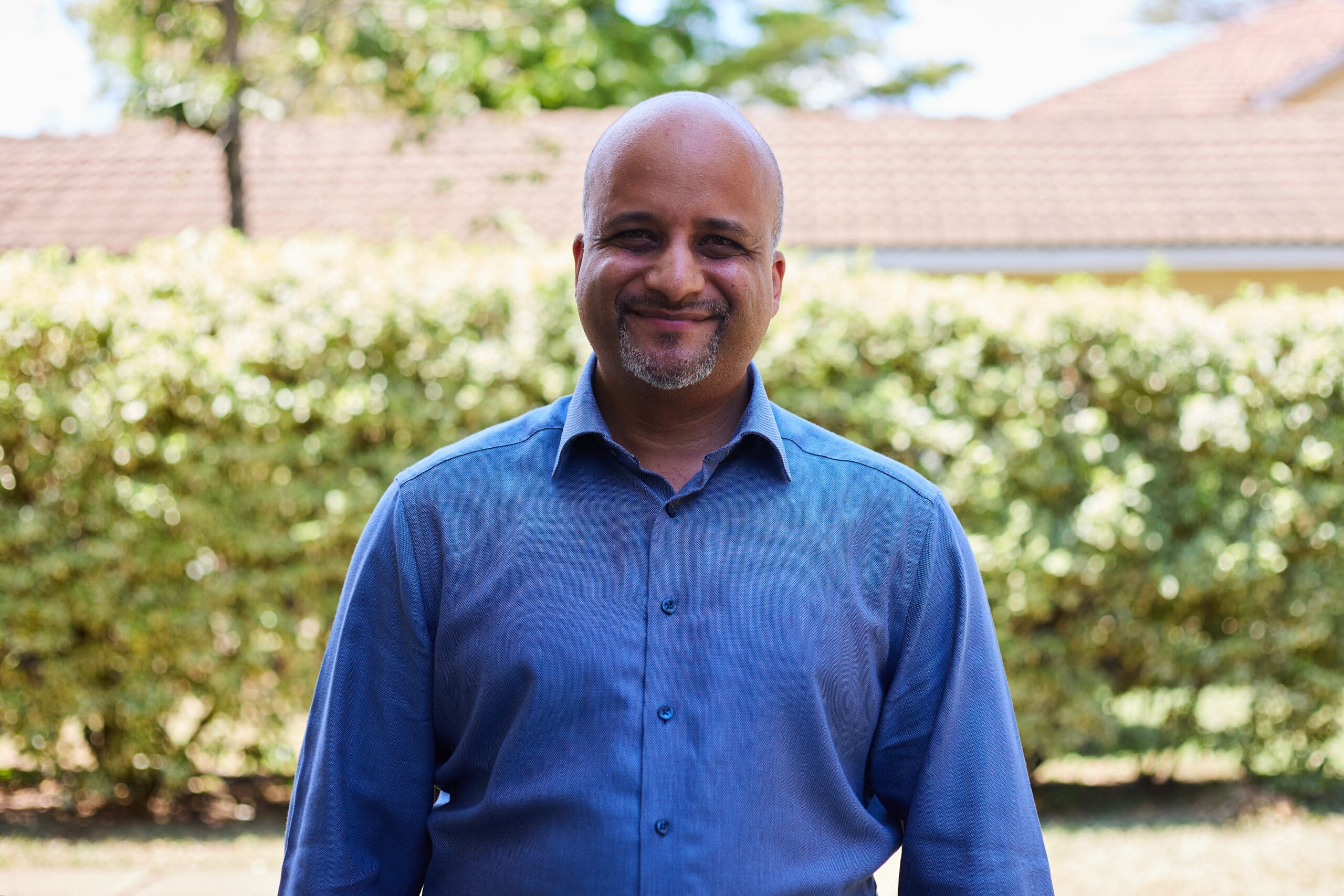When Jay Patel first joined Jacaranda, things looked a little different.
The sum total of our technology at the time was an off the shelf messaging system, which we used to send messages to mums on PROMPTS. A single agent manned the helpdesk, responding systematically to questions as they came in. It was expensive, inflexible, and hard to scale.
Back in 2018, Jay was one of two hires brought in to look for potential improvements in our technology stack and workflows.
Starting at Jacaranda felt both daunting and exciting. I knew little about maternal and newborn health and less about the public health sector. The team, though small, was scrappy and dedicated. They welcomed me warmly and wasted no time in throwing me into the deep end. I viewed this as a chance for growth, and I’ve not stopped learning since that first day.’
Six years on, and Jay leads a team of eight who, together, pioneer world-first AI models across Africa.
AI wasn’t really in our sights at the beginning. And then even when we started experimenting with it, we never dreamed of getting to the point where we’d be open-sourcing our own models.’
Jay’s journey from Innovation Fellow to Director of Technology closely dovetails with Jacaranda’s own technology journey. His guiding principles of real-world testing, hiring right, and building simply have become the songsheet from which our tech-enabled solutions have grown – and thrived.
Our current tech infrastructure has transformed our ability to support mums and babies. PROMPTS’ AI system has evolved to give mothers highly nuanced, accurate information and referral support – for 10% of the cost and 6000% the efficiency (ie. questions processed) than when Jay joined. Together with our Data and Quality teams, he has steered the back-end development of our dashboards, which now give 22 Kenyan county governments better real time visibility into their health systems.
Most recently, his team launched a first-in-kind Swahili-speaking Large Language Model, UlizaLlama, unlocking new potential for AI-driven services in low-resourced areas.
Throughout this growth trajectory, his principles for design and scale have stayed resolute, namely:
1. Demo not memo. Technology has always moved fast. But in recent months, this trajectory has soared with everyone from tech giants to small nonprofits wrestling to harness the latest models and beat the curve. Jay’s advice? Don’t let things languish too long in the design stage. Build fast and put it out there, and let the design evolve from ‘real world’ testing. Jacaranda’s earliest AI work was a testament to this approach. ‘We didn’t hang around.’ says Jay. ‘We were quick to integrate our initial models into the helpdesk, and then refine them based on real-world performance. Had we tried to preempt every design consideration, it’s likely we wouldn’t have achieved the same level of innovation.’ This strategy of ‘real world’ refinement has both accelerated development and ensured advancements are practical, safe, and aligned with actual user needs.
2. Build simply. Our tech-enabled solutions have to work, but they also have to be simple. Complex systems comes with maintenance, upgrade and switching costs. Simple systems enable small, local teams to easily manage, upgrade and maintain them – as well as helping to keep costs low, which is of paramount importance when it comes to scale in resource-constrained government health systems.
3. Hire smart. Under Jay’s leadership, Jacaranda’s technology team has grown from 1 to 9, now with a multidisciplinary mix of software developers, machine learning specialists, and data engineers. His philosophy has always been to plug ‘people smarter than [him]’ into identified growth areas, and let them guide innovation from there. ‘For example, we knew that in 2022, we wanted to level up our machine learning work.’ he explains. ‘So we brought on board Stanslaus Mwongela, a Machine Learning expert deeply committed pushing forward the boundaries of AI research in the healthcare domain’. In amongst a fast-paced and rapidly evolving environment, Jay’s only other ask of his team is an ‘ability to learn fast, a willingness to adapt and innovate continuously, and an affinity for tackling huge, ambitious targets’.
This new Directorship is testament to how far our technology has come, with visions set on scaling it within new geographies, use cases, and even training other implementers to use and benefit from it. Two of Jay’s principal focusses over the coming year will be on figuring out how to effectively scale our technology to new geographies, as well as building out Jacaranda’s AI strategy to ensure we continue to stay ahead of the curve – all while maintaining the same principles of responsible, transparent and ethical AI.

